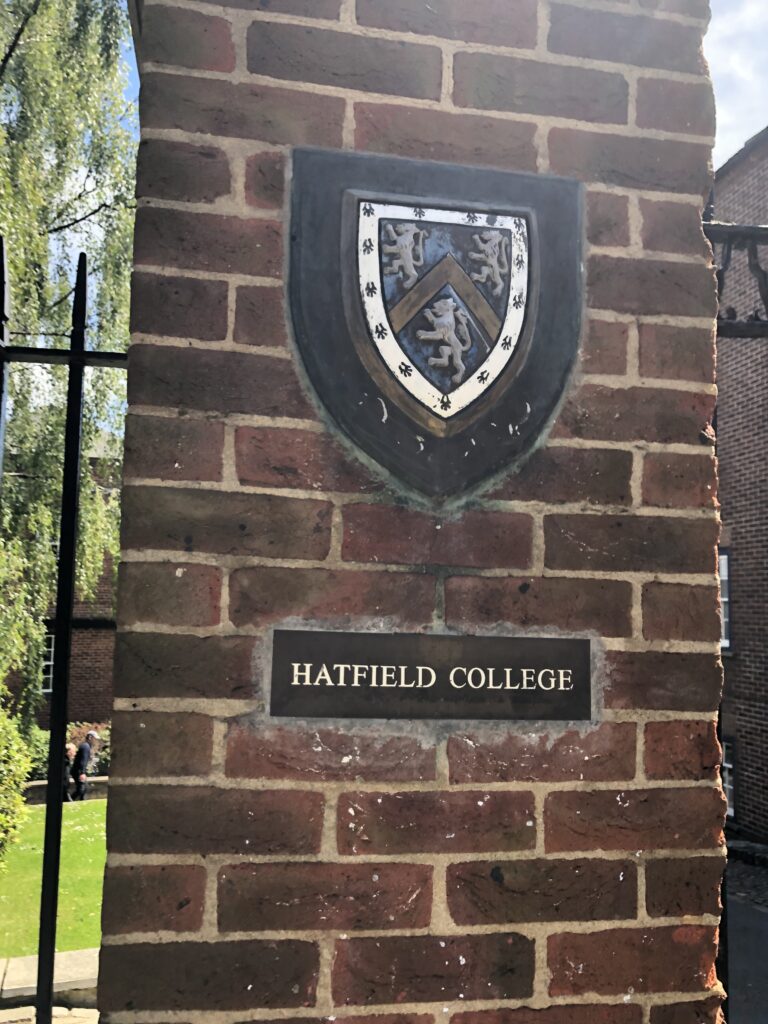It’s been almost a month since the Freshers arrived, full of preconceptions about Oxbridge rejects, the rahs, the dull nightlife. Now it’s time to look back and decide whether these Durham stereotypes are fact or fiction.
1. Disappointing Nights Out
Whoever first concocted the ‘Dullham’ moniker has clearly never been on a Durham night out. Who can forget the beautiful Castle bar? And the Stevo bar? And Chad’s bar? And… You get the idea. Half the fun of the bars is seeing how many you can hit up before you’re unceremoniously turfed out into the cold in the wee hours of 11-11.30pm.
But fear not! The night isn’t over until you’ve headed to one of Durham’s many nightclubs for a whole three hours of unfettered enjoyment. Before the bars close up at 2am of course, just in time for five hours sleep before your 9am. You can’t say your wellbeing isn’t looked after in Durham.
While this might make you want to catch the first train to Newcastle, I’ve still ranked this as the least accurate stereotype. Why? Because whether it’s the kind soul sacrificing their housing deposit for afters, or the student downing so many Quaddies that the sound of Abba poorly crossfading into Mr Brightside actually starts to hype you up – Durham students make do.

2. Consistent Career Choices
If you’ve been around Durham for long enough to get chatting about graduate jobs, you may have begun to notice a pattern emerging.
Whether its Humanities students planning their conversion courses into corporate law, or STEM students watching Lockheed Martin’s stock prices go up with a bit too much interest, Durham students occasionally have preferences for the profitable – sometimes over the ethical.
You can’t blame the law convertors, really. It’s a tough out there, and if you want to find employment, let alone get paid more than 24K a year, entering the world of work with nothing but a 2:1 in philosophy and a failed indie film blog to your name is probably unwise.
As far as STEM students go, it’s difficult not to pass a little judgement. When your mate tells you, with great offense, that his placement is with “a defence company, not an attack company”, it really doesn’t inspire much confidence in the moral fibre of our academic cohort. In fairness, at least a few are aiming for finance too.
It would be unfair to suggest this is unique to Durham, though. Plenty of students from across the country are tempted into applying to these same profitable sectors. We’re just better at it, as with most things.
3. The Durham Bubble
It’s partially the sheer tininess of the city that makes this stereotype an unfortunate reality. Whether it’s a messy break-up, or a freshers fling you’d rather forget, look forward to seeing that person studying in the Billy-B, hooking up with someone new in Babs or lurking in the meal deal isle of marketplace Tesco every other day for three to four years.
The bubble isn’t a purely physical phenomena either. Reuniting with your hometown friends during the holidays and discovering they signed for their house in February, rather than October, holidayed in Skeggy, rather than the Alps, and have no idea what “SNK”, a “JCR” or a “Quaddie” is can feel like waking up from a long dream. Whether or not this awakening comes as a disappointment or a relief is up to the individual student’s interpretation.

2. The Rahs
Between the academic rigour and an above-national-average amount of green gilets around campus, many people assume Durham University must be full of privately educated toffs. That’s simply not the case; we also admit grammar school students.
In all seriousness, as of 2025, Durham University has the highest percentage of privately-educated students in the country, more than quadrupling the national average of 8.9 per cent. Does this necessarily result in a major class divide within the student body? Not always as overtly as is often imagined.
Hatfield forms a reasonable containment field for most outspoken rahs, and state-schoolers have a firm foothold in the self-catered colleges, meaning you likely won’t encounter direct classism very often, even if it reminds quietly pervasive within Durham.
Often, feelings of division are more subtle. A simple conversation about holiday destinations, grocery shopping, college sport, or high school can remind you just how much of a wealth gap there is between you and your peers. Durham University is consistently making more of an effort welcome student from lower income backgrounds, but change is slow, and state-educated students can often feel like they’re on the back foot.

1. Oxbridge Rejects
Let’s be realistic here, this stereotype, unlike the ever-aspirational “Doxbridge” portmanteau, is fully deserved.
Everyone knows the classic freshers’ small-talk formula; name, college, subject. Really, though, it should be expanded to include “Oxford or Cambridge reject?”, since the topic is guaranteed to be brought up in any fresher’s week conversation lasting longer than about five minutes.
Still, with Durham turfing both Oxford and Cambridge out of The Times’ top three rankings for 2026, there may yet be hope for us. Perhaps the day will come when the sixth former, weeping over their UCAS page, will fall to the ground in despair after their Durham rejection comes through, relegated to their insurance choice: Cambridge. But until then, Durham University is unlikely to shake off this particular stereotype.
For more of the latest news, guides, gossip, and memes, follow The Durham Tab on Instagram, TikTok, and Facebook.
